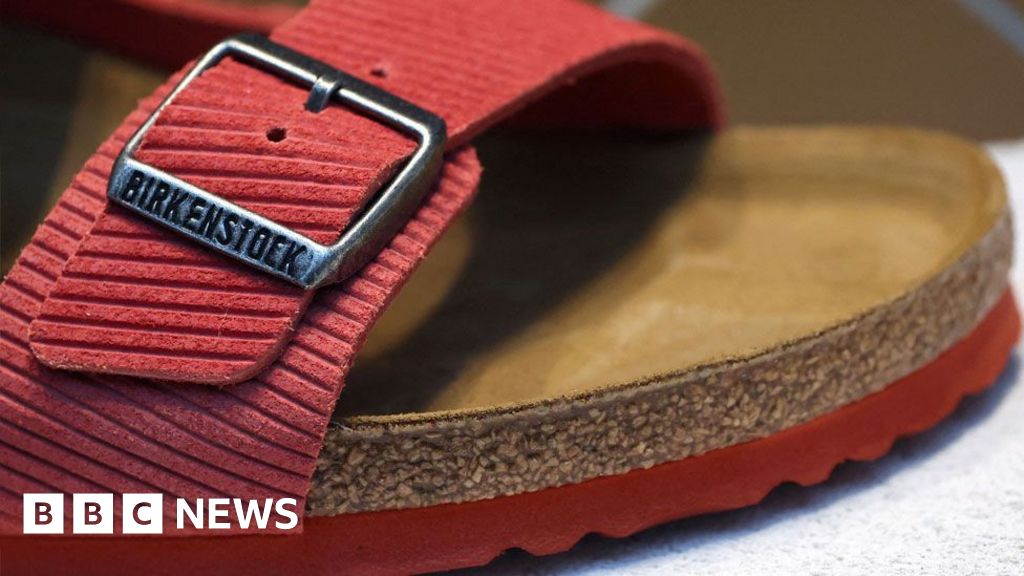
A German court has determined that Birkenstocks, while fashionable enough for Barbie, do not qualify as artistic creations.
Birkenstock had argued that its sandals should be recognized as art to secure copyright protection, aiming to prevent competitors from selling imitation versions of their well-known cork-soled footwear.
However, the judge rejected this assertion, labeling the footwear as practical items rather than creative pieces, a ruling that Birkenstock deemed a “missed opportunity for intellectual property protection.”
Though once seen as unfashionable, Birkenstocks have surged in popularity, largely due to actress Margot Robbie’s appearance in a pink pair during the climactic scene of the 2023 blockbuster Barbie film.
Known for their contoured footbed design, Birkenstocks have earned acclaim for their comfort and durability, evolving over time to feature a variety of colors and strap styles since their original leather designs emerged in the 1960s.
Despite an initial exclusion from high fashion, these sandals gained credibility after being endorsed by supermodel Kate Moss in the ’90s and even made appearances on the red carpet at the Academy Awards.
In 2023, the brand successfully listed on the New York Stock Exchange, achieving a valuation of approximately $8.6 billion (£7.08 billion), effectively doubling its worth since 2021.
The skyrocketing demand for Birkenstocks has led many competitors to produce counterfeit items, prompting the company to seek legal action to safeguard its “iconic design.”
In this legal pursuit, Birkenstock targeted three manufacturers and retailers, hoping to protect four specific sandal styles.
Under German law, a distinction exists between design and art; while design fulfills a functional role, works of art must display a significant level of creativity.
Art receives copyright protection lasting for 70 years past the death of its creator, whereas design rights extend for 25 years from the date of registration.
Karl Birkenstock, the shoemaker born in the 1930s, is still living. With some of his sandals lacking design protection, the company sought to redefine its footwear as art to obtain copyright safeguards.
Judge Thomas Koch, however, labeled this claim as “unfounded.”
He noted that, for copyright eligibility, a product must demonstrate a certain level of individuality in its design.
In a statement, Birkenstock expressed its commitment to vigorously combat imitations, pledging to utilize all available legal avenues to defend its original designs.
This decision from the Federal Court of Justice, Germany’s highest civil court, concludes a legal process that saw differing opinions among two lower courts.
The initial court ruled in favor of Birkenstock, but the subsequent court reversed that verdict.









